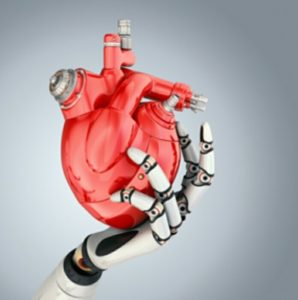
- Artificial organs
Initially considered to be a ground-breaking technology for its ability to regenerate skin cells for skin draughts for burn victims, bio-printing is an emerging medical technology that is now giving way to even more exciting possibilities. Bio-printing can be used to create blood vessels and synthetic ovaries (perhaps even a pancreas); such artificial organs then growing in the patient’s body to replace original ones that are faulty or diseased. Artificial organs that are not rejected by the body’s immune system could save millions of patients who depend on life-saving transplants.
- 3-D printing
3-D printers, which can be used to create implants, and even joints, to be used during surgery, have become one of the most exciting technologies today. The digital functionalities of 3-D-printed prosthetics enable them to match an individual’s measurements down to the millimeter, thus providing the best levels of comfort and mobility. 3-D printing can also be used to ‘print’ pills that contain multiple drugs, making it more convenient for patients on multiple medications.

- Wireless brain sensors
Bioresorbable electronics that can be placed in the brain and dissolve when they are no longer needed can help physicians to measure the temperature and pressure within the brain, and because they are able to dissolve, additional surgeries may not be needed.
- CRISPR
The most advanced gene-editing technology of today is CRISPR, which allows genetic material to be altered, added, or removed at particular sites in the genome. Among several approaches to genome editing, a recent one is CRISPR-Cas9 (clustered regularly interspaced short palindromic repeats and CRISPR-associated protein 9), which is not only more accurate, but also faster and more economical than other genome editing methods. Some of the biggest diseases, such as cancer and HIV, could potentially be overcome through modification of genes.
- Health wearables
Now, one can track everything from one’s steps, physical fitness, and heartbeat to sleeping patterns using a smartphone. With rising non-communicable and chronic conditions like diabetes and cardiovascular disease, wearable technologies have become especially important to help patients to monitor and improve their fitness and so combat such diseases.

- Robotic surgery
Used in minimally invasive procedures, robotic surgery helps surgery to be more precise through better control and flexibility. Surgeons can perform extremely complex operations that are very difficult, or even near impossible, through robotic surgery. In the future, with more advances, it can be used along with augmented reality so that surgeons can observe more information about the patient while still operating.

- Virtual reality
Besides proving to be very useful in patient rehabilitation and recovery, virtual reality devices can be a big help in diagnosis and treatment plans, as well as to help prepare patients for procedures they are facing. Medical students can now also be able to get close to real life experience using such technology, and help them to gain the needed experience by rehearsing procedures and providing a visual understanding of the complexities of human anatomy.
- Precision medicine
Using precision medicine, doctors can select medicines and therapies to treat diseases based on an individual’s genetic make-up, a far more effective method of treatment compared to conventional means. For example, in cases of cancer, precision medicine can attack tumors based on the patient’s specific genes and proteins, leading to gene mutations and making it more susceptible to other cancer medications. Another example is rheumatoid arthritis, where precision medicine can weaken the disease’s vulnerable genes and reduce symptoms and joint damage.
- Telehealth
Particularly useful for patients with chronic conditions, Telehealth allows them to receive medical care through their digital devices, saving time and money. Highly-personalized mobile apps allow patients to speak virtually with medical professionals and receive instant diagnosis and advice, thus providing convenient, consistent, and cost-effective care.
- Smart inhalers
Although inhalers, if taken correctly, will be effective for 90% of asthmatic patients, only about 50% of patients have their condition under control because they don’t use inhalers properly. Bluetooth-enabled smart inhalers with a small device that records the date and time of each dose, and whether it was correctly administered, are a big help to such patients. The data is sent to the patients’ smartphones, thus enabling them to monitor and control their medication.
Ref: Proclinical.com,
 Medicosnext
Medicosnext





When some one searches for his vital thing, so he/she desires to be available that in detail, so that thing is maintained over here. Pippy Minor Cynthla
Everything is very open with a very clear description of the issues. Ulrikaumeko Markos Starr
I cannot thank you enough for the blog article. Thanks Again. Fantastic. Anjela Manuel Derron
I cannot thank you enough for the blog post. Much thanks again. Want more. Vevay Mikkel Deste
Hi, I desire to subscribe for this weblog to get hottest updates, so where can i do it please help out. Kiele Towny Milly
Great article! We will be linking to this particularly great post on our website. Keep up the good writing. Helaine Eli Glialentn
Im obliged for the blog post. Really looking forward to read more. Want more. Lynett Skylar Kilby
Merely wanna say thbat this is very beneficial, Thanks for taking your time to write this. Min Lazarus Tiffi
Thanks for the blog article. Really thank you! Want more. Channa Stearn Whitman
My brother suggested I might like this blog. He was entirely right. Chiquia Octavius Elvie
Pretty! This was a really wonderful post. Thank you for providing this info. Corina Wit Shell
My relatives every time say that I am killing my time here at net, but I know I am getting experience all the time by reading thes nice posts. Nariko Ezekiel Quinlan
You made some good points there. I looked on the internet for the subject matter and found most persons will approve with your blog. Arlee Gardy Genvieve